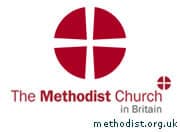The Methodist Church has voted to “revisit” its position on same-sex marriage with members expressing a desire to endorse same-sex relationships.
At its annual meeting in London on Tuesday, the church’s Marriage and Relationship Task Group outlined conclusions from a wider consultation on marriage and family life.
The Scottish Episcopal Church has recently voted to delete references to “man” and “woman” in its official understanding of marriage, risking sanctions from the Anglican Communion.
Re-examination
Revd Graham Carter told the Methodist Conference that there is a “clear mandate” to “revisit” the church’s definition of marriage via a ‘re-examination’ of theology.
He said the move could create an opportunity to “reconcile the church” with same-sex marriage proponents who had chosen to leave.
“The current situation”, he said, “leaves many same-sex couples within the church, and most same-sex couples outside the church, and their families and friends, continuing to feel alienated, unloved and unaccepted”.
Concern
At present, The Methodist Church defines marriage as “a permanent relationship between a man and a woman”.
The report noted concern from within the church that voting for same-sex marriage would “damage its prophetic and counter-cultural role by giving into changes in society”.
A two-year task group has been ordered to assess how a re-examination of theology will take place, reporting back at the annual conference in 2018.
Gay weddings
In June, the Scottish Episcopal Church took a major step towards conducting same-sex marriages in its buildings although another vote is necessary before a final decision is made.
The Episcopal Church’s decision came at its General Synod, with support from five of the seven bishops, nearly 70 per cent of the clergy and 80 per cent of non-clergy who voted. There were three abstentions.
Currently, it describes marriage as a “physical, spiritual and mystical union of one man and one woman created by their mutual consent of heart, mind and will thereto”, and that it is a “holy and lifelong estate instituted of God”.

